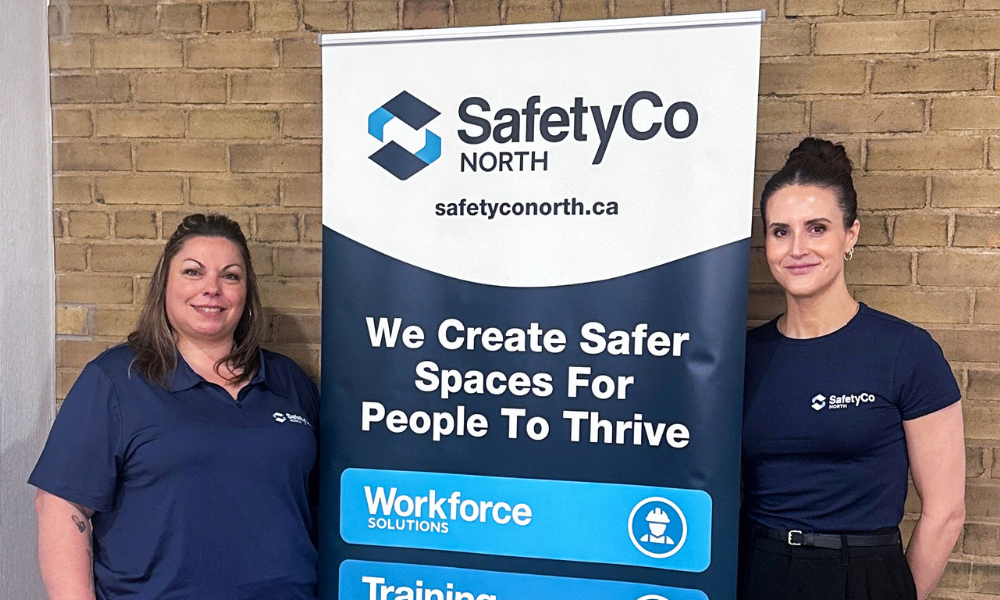Sustainability and financial accounting will soon include critical occupational safety and health data in the continued evolution of integrated reporting, according to a report by the Center for Safety and Health Sustainability (CSHS).
Written to advise and educate occupational health and safety professionals about emerging trends in sustainability and financial accounting, The Accounting Revolution and the New Sustainability: Implications for the Occupational Safety and Health Professional provides insight and analysis of current sustainability policies and practices as well as implications for OHS oversight and management.
“OHS professionals know their work not only saves lives but contributes to an organization’s long-term viability and financial stability. By integrating OHS performance into effective sustainability reporting, business leaders and investors will have more interest in OHS as a foundational aspect of human capital in their world of economic, social, governance (ESG) investing," said CSHS board chair Kathy Seabrook.
Sustainability information helps business leaders identify opportunities for risk mitigation and value creation while helping investors and analysts understand factors that affect investment performance. As a result, there is an increased focus on improving performance on “material” sustainability issues, said CSHS.
With the increasing recognition that many non-financial topics, such as OHS, are material, OHS stands to benefit from a dramatic transformation of the way it is viewed and managed by organizations.
Integrated reporting, which combines the reporting of sustainability information with financial information, has moved sustainability from the backroom to the boardroom. A major step in the direction of greater corporate transparency and the sharing of meaningful risk management and performance data, integrated reporting should help make sure sustainability information is better integrated into business strategies, processes and decisions, said CSHS.
The expanded notion of “capitals” in reporting moves beyond traditional reporting on financial and physical capital to include human, social and relationship, intellectual and natural capitals that are also acknowledged to be essential to organizational growth. OHS professionals should expect to see more about the importance of human and social capital to an organization, in particular.
“OHS professionals now have line of sight to the board room in their organizations as never before,” said Seabrook. “To capitalize on this, OHS professionals should play a leadership role in organizational activities such as horizon scanning, change management, enterprise risk management, supply chain management and developing and implementing new standards such as ISO 45001. Not recognizing the opportunities that sustainability brings will leave OHS professionals behind in reactive, compliance-focused roles.”
Written to advise and educate occupational health and safety professionals about emerging trends in sustainability and financial accounting, The Accounting Revolution and the New Sustainability: Implications for the Occupational Safety and Health Professional provides insight and analysis of current sustainability policies and practices as well as implications for OHS oversight and management.
“OHS professionals know their work not only saves lives but contributes to an organization’s long-term viability and financial stability. By integrating OHS performance into effective sustainability reporting, business leaders and investors will have more interest in OHS as a foundational aspect of human capital in their world of economic, social, governance (ESG) investing," said CSHS board chair Kathy Seabrook.
Sustainability information helps business leaders identify opportunities for risk mitigation and value creation while helping investors and analysts understand factors that affect investment performance. As a result, there is an increased focus on improving performance on “material” sustainability issues, said CSHS.
With the increasing recognition that many non-financial topics, such as OHS, are material, OHS stands to benefit from a dramatic transformation of the way it is viewed and managed by organizations.
Integrated reporting, which combines the reporting of sustainability information with financial information, has moved sustainability from the backroom to the boardroom. A major step in the direction of greater corporate transparency and the sharing of meaningful risk management and performance data, integrated reporting should help make sure sustainability information is better integrated into business strategies, processes and decisions, said CSHS.
The expanded notion of “capitals” in reporting moves beyond traditional reporting on financial and physical capital to include human, social and relationship, intellectual and natural capitals that are also acknowledged to be essential to organizational growth. OHS professionals should expect to see more about the importance of human and social capital to an organization, in particular.
“OHS professionals now have line of sight to the board room in their organizations as never before,” said Seabrook. “To capitalize on this, OHS professionals should play a leadership role in organizational activities such as horizon scanning, change management, enterprise risk management, supply chain management and developing and implementing new standards such as ISO 45001. Not recognizing the opportunities that sustainability brings will leave OHS professionals behind in reactive, compliance-focused roles.”





